Legal Issues
Corrections officers must remain up-to-date with the legal statutes that inform officer action. Courses under this topic will include Corrections Liability, Jail Risk Management, Officer Liability, PREA–Prison Rape Elimination Act, and Understanding Inmates’ Rights – Legal Trends

| Course Name | Course Description | Length |
|---|---|---|
| Corrections Liability – NEW! | This one-hour course provides Corrections Officers with the appropriate methods and regulatory practices to ensuring utmost jail liability. | 1h |
| Lexipol Connect 2022: Legal Trends for Corrections – NEW! | This video is from Lexipol’s 2022 Connect conference and presents correctional legal trends of 2022. The information is directly relevant to Lexipol policy customers but may also be helpful to non-policy customers interested in corrections legal trends around the country. | 30m |
| Liability Issues in Use of Force | Law Enforcement Expert, Dave Smith discusses liability issues in the use of force with Chuck Joyner. | 15m |
| Litigation Procedures | Law enforcement and corrections officers play important roles in the legal and judicial process. When laws have been broken, police are responsible for apprehending the alleged perpetrator, and corrections officers are responsible for securing them safely so that they can be tried for the crimes which they have allegedly committed. In this course, the learner will examine how his or her role as a law enforcement or corrections professional interacts within the context of the judicial process as a whole, as well as the guidelines to follow while testifying in court and finally how his or her appearance or demeanor in the courtroom could impact a jury. | 1h |
| Officer Liability | This two-hour course will educate you on the federal laws and Constitutional laws that help officers perform their duties in accordance to these laws. | 2h |
| Prison Rape Elimination Act (PREA) Overview – NEW! | Because sexual abuse has no place in our society, the Prison Rape Elimination Act (PREA) was signed into law to detect, prevent, respond, and prosecute sexual harassment and sexual abuse in confinement. This 1-hour course provides an overview of PREA’s standards for protecting correctional inmates and staff from sexual exploitation, harassment, and abuse. | 1h |
| PREA: Rights, Reporting, and Retaliation for Juvenile Detention – NEW! | The Prison Rape Elimination Act (PREA), signed into law by President George W. Bush in 2003, put rules in place to help reduce sexual abuse and sexual harassment in a juvenile detention setting. As a follow-up to the PREA Overview course, this second PREA course focuses on rights: specifically on a resident’s right to be free from sexual abuse and sexual harassment, and a resident’s and an employee’s right to be free from retaliation for reporting sexual abuse and sexual harassment. This 1-hour training uses the PREA curriculum materials outlined by the National PREA Resource Center through a cooperative agreement with The Moss Group Inc. and the Bureau of Justice Assistance. The information and activities are designed to meet objectives consistent with required employee training elements outlined in the PREA Standard, 115.331. | 1h |
| PREA: Rights, Reporting, and Retaliation for Prisons and Jails – NEW! | The Prison Rape Elimination Act (PREA) put rules in place to help reduce sexual abuse and sexual harassment in a confinement setting. As a follow-up to the PREA Overview course, this second PREA course focuses on rights, specifically on an inmate’s right to be free from sexual abuse and sexual harassment, and an inmate’s and an employee’s right to be free from retaliation for reporting sexual abuse and sexual harassment. This 1-hour training uses the PREA curriculum materials outlined by the National PREA Resource Center through a cooperative agreement with The Moss Group, Inc, and the Bureau of Justice Assistance. The information and activities are designed to meet objectives consistent with required employee training elements outlined in the PREA Standard, 115.31. | 1h |
| Presenting Effective Testimony in a Courtroom | The crime report has been written. The District Attorney Office has pressed charges. Now it is time to complete the final and critical step, testify in court. This course covers the basic strategies an officer can deploy to improve their performance in the courtroom. | 1h |
| Privacy Protocols for Officers and the Internet | Doug Wyllie interviews Lauri Stevens regarding officer safety issues related to social networking and the internet. Lauri emphasizes some of the important privacy settings to put in place for officers who use Facebook, as well as camera settings for your cell phone. | 5m |
| Sexual Harassment Prevention – Corrections – NEW! | Corrections is an industry at high risk for sexual harassment and misconduct: a quasi-military, traditionally male-dominated structure confronting the realities of changing demographics, a profession in which employees not only work long hours under high stress, but are also, in essence, confined together over the course of a shift. It’s no surprise that corrections may be ripe for sexual harassment claims. But, considering the ever-present element of danger in our facilities, and the importance of having trust in our fellow officers, eradicating sexually harassing behavior from corrections is critical to our mission This course provides you with the information needed to spot and address incidents of “staff on staff” sexual harassment in corrections. The problem is not solved simply with awareness. Take the information presented in this course and make meaningful changes to policy, member behavior, and correctional culture. | 1h |
| State and Federal Law Update 3184 | This material is a general summary of selected court cases and changes to Texas criminal law as wrought by the 84th session of the Texas Legislature. | 4h |
| State and Federal Law Update 3185 | This course will provide updates on multiple bills passed by the 85th Legislature that has an impact on Texas Law Enforcement. This course includes administrative changes, changes in existing statues, and new laws. This course applies to all Law Enforcement Officers, Law Enforcement Administrators, and Policymakers. This course includes video testimonials courtesy of the Killeen Police Department which will help clarify the complex changes in the law. | 3h |
| Understanding Inmates’ Rights – Legal Trends | As a corrections officer, it is important to understand that the inmates in your custody have constitutional rights. It makes no difference what they are charged with or what is in their criminal history. The subject of inmate rights has evolved for more than 50 years. Correctional personnel do not have to be lawyers, but they must understand inmates’s rights and liability. This course will provide a basic, but working knowledge examination of inmates’ constitutional rights and trends in courts’ decisions that affect those rights. | 1h |
